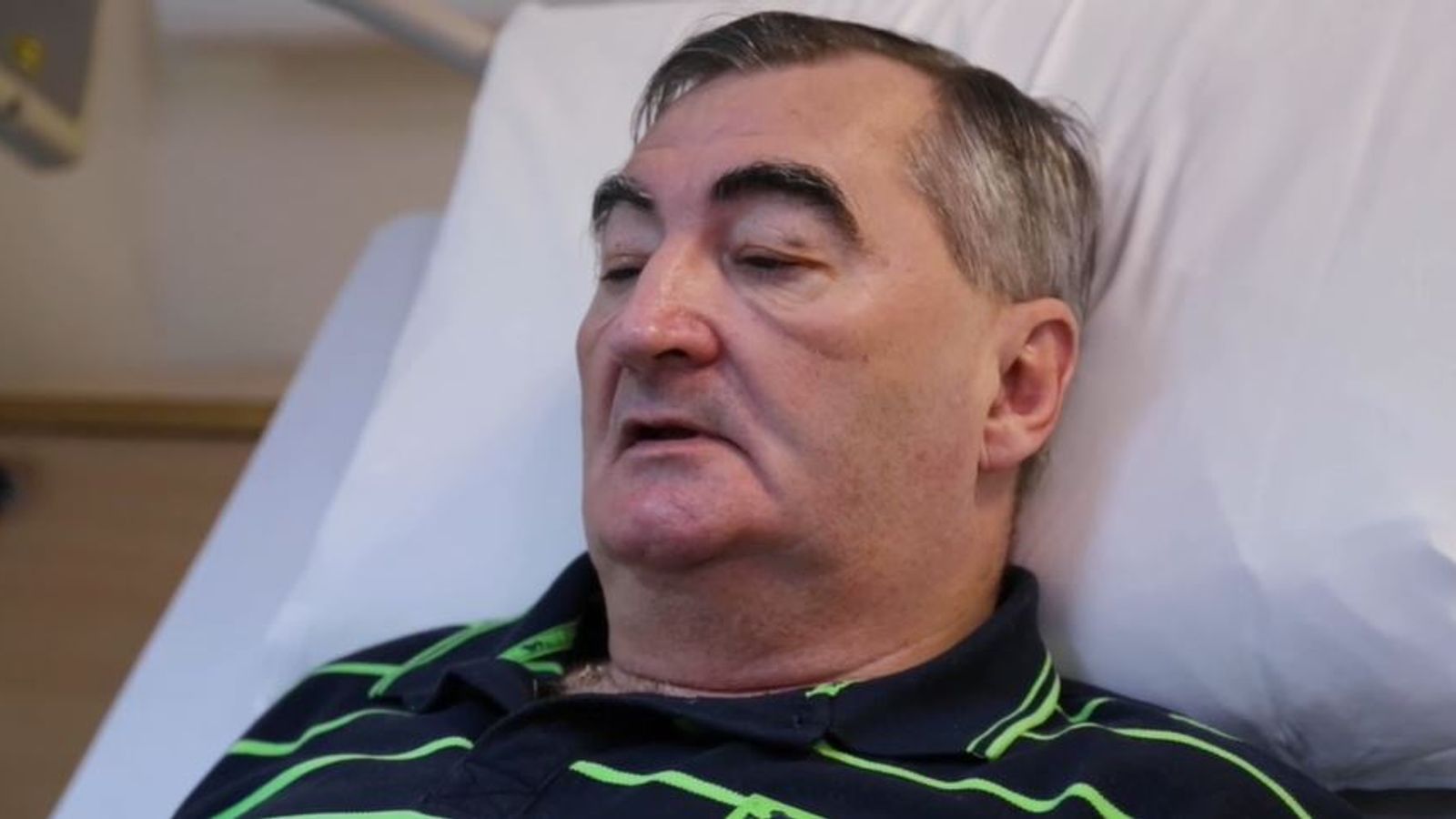Doctors have welcomed a “milestone” treatment that slows or even reverses the progressive muscle weakness in patients with motor neuron disease (MND).
New results from an international study show that patients receiving monthly injections of the drug Tofersen reported better mobility and lung function after a year of treatment.
A patient who was in a wheelchair at the beginning of the study can now walk without canes.
Professor Dame Pamela Shaw, a professor of neurology at the University of Sheffield who led the UK portion of the study, said it was the first time in more than 25 studies on MND that she had seen an improvement in muscle function.
“Never before have I heard patients say, ‘I’m doing things today that I couldn’t do a few months ago — walk around the house without my sticks, climb the garden steps, write Christmas cards,'” she said.
“For me, this is an important treatment milestone.”
Motor neuron disease affects around 5,000 people in the UK. Astrophysicist Professor Stephen Hawking had the disease for many decades.
For reasons that are poorly understood, this causes the nerves that carry signals from the brain to the muscles to stop working. This leads to muscle weakness and paralysis that worsens over time and is eventually fatal.
There are about 30 genes that are known to cause or predispose people to the disease. A mutation in one of them, called SOD1, is responsible for about 2% of all cases.
But Biogen’s new drug stops the faulty SOD1 gene from making a protein that causes nerve damage.
A previous study suggested six months of injections into the spinal fluid, which reduced levels of the SOD1 protein along with other underlying biological markers of the disease.
New updated results in 108 patients, published in the New England Journal of Medicine, show biological effect converts to real clinical benefit after one year of continued treatment.
In patients with slowly progressive MND, muscle strength actually improved slightly and disease severity remained “remarkably” stable, Prof Shaw said.
In patients with more rapid disease progression before treatment, the decline in muscle function was slower.
Les Wood, 68, from Thorne, South Yorkshire, was diagnosed with MND 10 years ago and first took part in the study in 2016.
He said: “After 12 months on the drug I was actually able to walk around the house without a cane, I was able to stop some of my pain meds and I felt a lot better about myself.
“It gives a lot of people hope for the future, including my own family, because I have a family history of motor neuron disease.
Professor Chris McDermott of the University of Sheffield’s Institute for Translational Neuroscience and another researcher said: ‘It’s having an impact and it’s a sea change for people living with the disease, but it’s not a cure.
“There are patients who don’t seem to be making any progress at all, but there are others, we believe, with different mutations that are progressing more slowly.”
Biogen is expected to submit the new results to drug regulatory authorities in the UK, US and Europe. It has launched an ‘Early Access Scheme’ allowing anyone with MND and the SOD1 gene to get the drug free of charge until it is available on the NHS.
The scientists hope they will be able to use the same drug design techniques to target other genes that can trigger MND, leading to an era of personalized medicine.
“These principles emerging from this study are a real source of hope for MND patients overall,” said Prof. Shaw.
“When you are a patient or family dealing with a disease like MND, the pace of science and medicine seems painfully slow.
“But this suggests that we are in a new era where we can expect real progress – not an overnight miracle cure, but where the progression of the disease is slowing.”
“It will make the disease a lot more livable and a lot less scary.”
#Motor #neuron #disease #Milestone #treatment #slows #reverses #progressive #muscle #weakness #study #finds


Leave a Comment